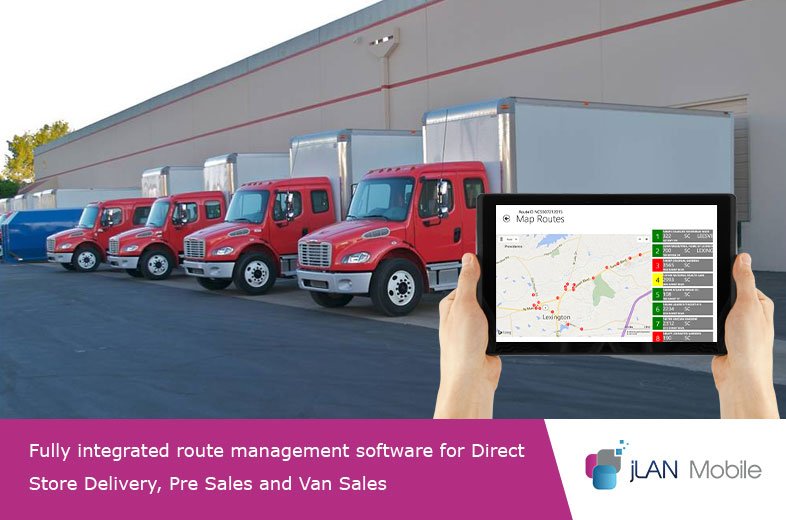A Quick Primer on Direct Store Delivery for Distributors
Direct store delivery is both a technology and a supply chain strategy. Distributors use direct store delivery to move product directly from their warehouse to the retailer bypassing the retailer’s distribution center. Direct store delivery or “DSD” is a strategy generally used by the food and beverage, candy, snack, beer and other consumer goods companies to restock sold consumable products at supermarkets, convenience stores, gas stations, restaurant and other retail outlets.
Benefits of DSD for Suppliers
DSD is a win-win for both the supplier and the retailer. For the supplier, the benefits include:
- Increased speed to market
- Less touch points such as multiple warehouses
- Faster inventory turns and higher volumes
- More control of the branding and merchandising strategies at retail
- Stronger, more collaborative customer relationships with retailers and consumers
- Much better insight and control of in-store merchandising and shelf allocation.
Benefits of DSD for Retailers
- Store-specific product assortments supported by ongoing merchandising, brand promotions and regular shelf management
- Value-added services such as in-store forecasting and demand driven replenishment
- Enhanced revenue and cash flow positions due to lower operating costs
How does Direct Store Delivery work?
Direct store delivery typical includes the suppliers physical warehouse and mobile warehouse such as delivery trucks. Customer visits are normally segmented into routes. Routes have a start of day and end of day process used to ensure complete accountability for the activities that happen on the daily route. When a route is started the supplier will transfer inventory from a main warehouse to the mobile warehouse which is usually a van or truck.
This mobile warehouse acts as a mobile point of sale location that visits each customer on a weekly, biweekly or monthly basis. Each mobile warehouse is managed by a route sales representative who is trained to sell, up-sell and cross-sell products to new and existing customers.
Often the route sales representative will have a pre-determined set of orders they need to deliver. However, it is also common that the deliveries are changed on the fly at the point of delivery.
What does a Route Sales Person do on a daily basis?
In its most basic sense the route sales person services customer accounts. They are the front-line representative for the supplier. Thus, they must be well trained and have information on hand they need to properly service their customers.
When a representative arrives at a customer stop, they first perform a physical count of the inventory remaining on the shelf or display. With this information, the rep is able to generate an invoice for that customer containing the quantities of cases that will be replenished. The driver will then go out to the truck, pick the invoiced quantities and bring them back into the store.
They will then give the invoice to a store employee who will accept the invoice and the inventory. On occasion reps may also collect payments for the new invoice or for past invoices. After completing all stops on the route, the rep returns back to the warehouse to close out the route.
The end of day route process includes reconciliation of all inventory and cash transactions that occurred during the route.
What makes a Route Sales Rep Successful?
Speed, accuracy and knowledge on hand. A rep must complete all of their scheduled stops every day. Therefore, the system they use muse be able to get them quickly in and out of a customer stop. Accuracy is just as important.
A major part of the reps job is to re-stock shelves to a desired level. In order to do that properly the rep must have accurate real time inventory information for remaining truck stock.
Knowledge of past buying patterns is also crucial. It’s common that a retail manager will consult with the rep regarding the sell through of specific products.
DSD is complex. To avoid stock outs and lost revenue multiple moving parts need to be meticulously organized. Given the fierce competition for retail shelf space any company that offers DSD to their customer must invest in a reliable software platform to manage the field sales operation.

